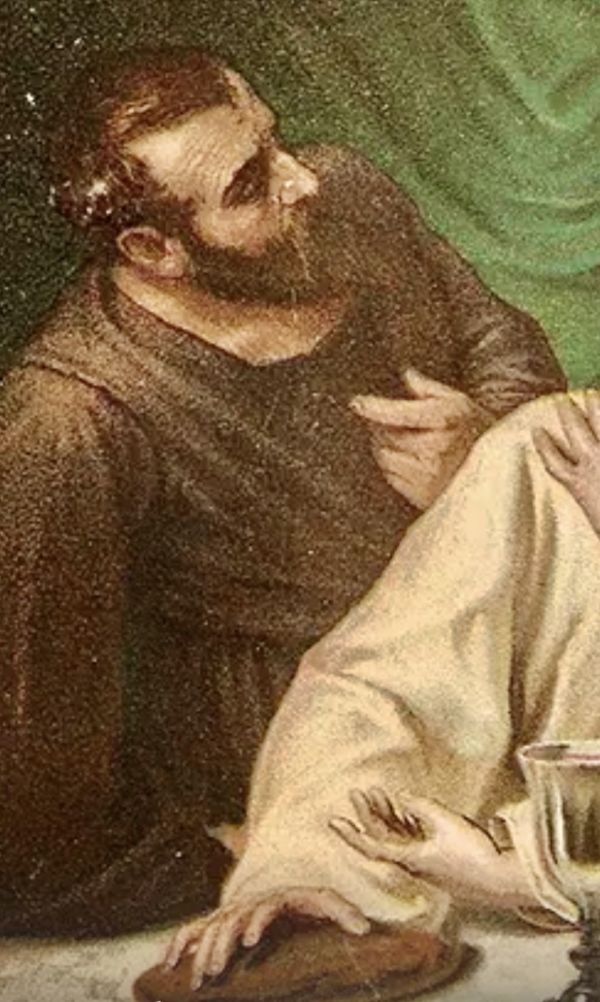(Mt 26:14-25)
Mt Mk Lk situate the institution of the Eucharist within the Jewish Passover supper. A theological re-elaboration to affirm (in the Faith) the meaning of the authentic Liberation Easter in Christ.
Compared to the Synoptics, the fourth Gospel is more in keeping with the sense of the Broken Bread: source of Life for all.
Jn places the death of the Lord at the moment in which the priests slaughtered the lambs [destined for the Passover] on the esplanade of the Temple.
The Face of Christ is that of the betrayed man.
But He lets it happen, because friends belong together - and knows: the inviolability of the loved one may not persist, even out of greed. Even at the expense of who first welcomed us.
All this happens with a sense of peaceful loss - not as a result of preordained plan, but so that the disciples reflect on their own situation.
It’s as if [to activate us] through the doubt about Judas and the whole group around, the Lord was still silently saying - precisely to us, but without moralizing: «Where are you?».
Because of the persecutions, some faithful of Mt community had allowed themselves to be intimidated and had abandoned their brothers of faith.
What attitude to adopt towards them?
The scandalous story of the first disciples’ failure opens incessant glimmers to the all times’ assemblies: the logic of the Kingdom is not affected by anything.
Wide-open doors even for those who deny and flee the Master.
Religious way without the Faith’s leap instills in sensitive people a progressive and marked sense of unworthiness: it imposes an unnerving waiting, of pressing perfections.
What counts is the splendid ability and attitude: how much person does for God.
But divine Love is not subject to conditions. Therefore, in the genuine and more reliable path, the surprise is first of all worth it: what the Lord creates for us.
He’s the Coming One, and the Subject who operates, disposes, guides - the One who reweaves again the plot. And with unexpected setbacks or leaps, He snatches us away from the insufficiency obsession.
Without this more than wise Friendship, one gives in and it can happen to sell Christ in exchange for the convictions of others, for futile junk; trivial profits, shoddy happinesses.
Jesus continues to dip the morsel in his Blood and hand it to us.
Little by little we’ll learn to stand up for his values, so that he lives through us as Bread broken and distributed.
Little by little we’ll even manage not to fall silent and not run away from the gift of life, by transmuting ourselves into humanizing Food.
The only character who instead ruins and self-destructs himself (Mt 27,5) is the one who is fully compromised with external seductions, and false spiritual guides.
To internalize and live the message:
If asked about what characterizes, do you undertake to flaunt the others’ beliefs and external or already traced out targets? Or do you unravel the freedom to be and become yourself in Christ?
[Holy Week Wednesday, April 16, 2025]












